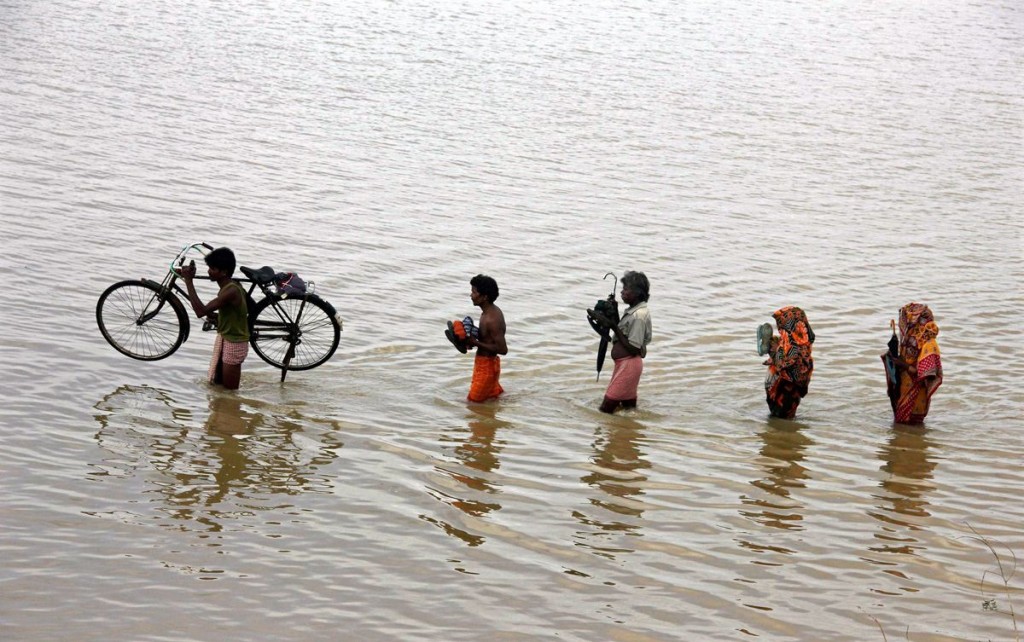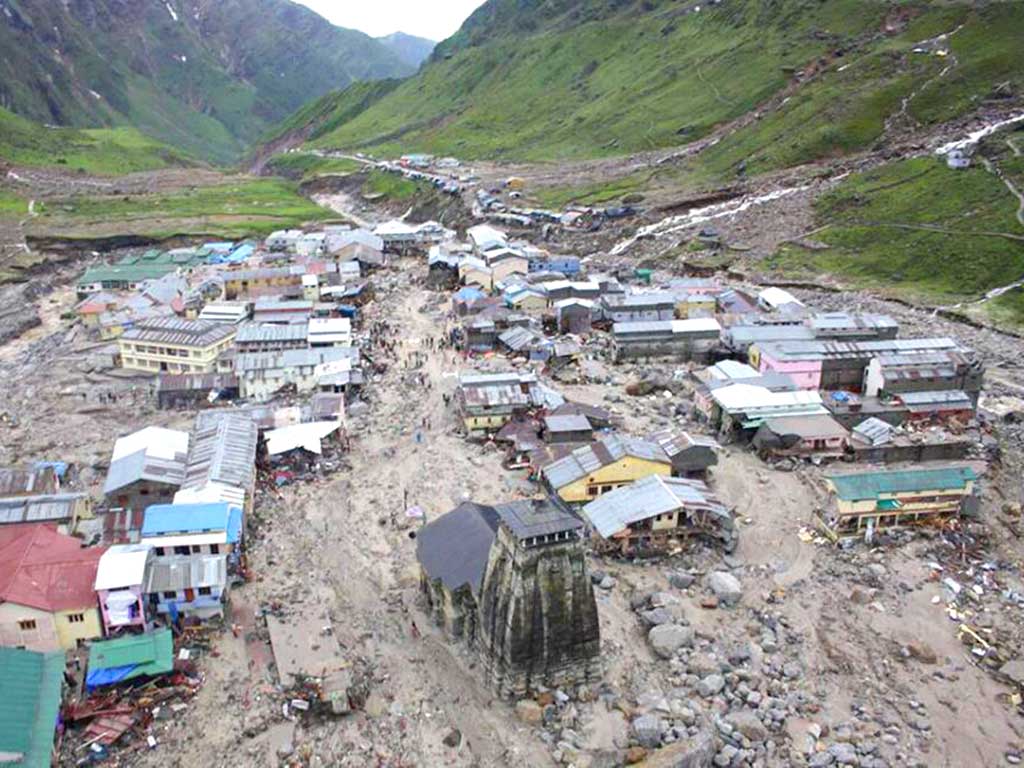As shocking stories continue to roll in from communities devastated by Typhoon Haiyan in the Philippines, rich countries persisted in blocking UN climate negotiations.
The G77+China group bloc have submitted a formal proposal on the controversial subject ‘Loss and Damage’ making an early move to ensure that the climate negotiations at Warsaw end with some concrete decision on the topic, which has support across the spectrum of developing country blocks but little buy-in from the developed nations.
‘Loss and damage’ refers to the demand from the poorest and most vulnerable countries that they must be compensated for the damage that will occur to life and property from the level of emissions already up in the atmosphere and which cannot be prevented even by adaptation.
The idea was firmly opposed till the last moment by developed countries like the US and stiffly battled by other developed countries in talks last year in Doha, till the rare absolute unanimity among the developing countries in the fragile G77+China group won the day and it was decided that a mechanism would be set up to address Loss and Damage from climate change.
In an internal briefing paper prepared for its diplomats across the world ahead of the Warsaw climate negotiations (which reportedly got leaked yesterday), the U.S. has opposed the setting up of a separate process on ‘loss and damage’, pushed primarily for the role of private investments and finance in providing the promised money to the poor countries to adapt to climate change and have a 2015 climate agreement where no country is forced to take higher emission reduction pledges than the ones they initially volunteer. It also informed its diplomats to keep pushing the line with other countries that the U.S. was doing enough domestically on the climate change front and these were priorities for President Barack Obama and John Kerry.The US and other developed countries have either opposed or been less than enthused by the idea as the Loss and Damage concept plays out as compensation or reparation in principle and could impose large financial liabilities on the developed countries for typhoons wrecking developing countries.
The formal G77 proposal says that the UN talks at Warsaw should agree “that the international mechanism is established to address loss and damage associated with the adverse effects of climate change from extreme and slow onset events in developing country parties, especially the least-developed countries and small island developing states and other developing countries particularly vulnerable to the adverse effects of climate change.”
The proposal further elaborates on the international mechanism and channelling of funds from the developed countries to support poor countries.
The proposal talks of mobilising sufficient new and additional resources, establishing a liquidity pool for swift relief in cases of episodic events and/or catastrophic shocks, providing funds for actions to reduce risk, and where it cannot be avoided, provide for rehabilitation or compensation of permanent loss. It talks of developing a suite of options for financial measures, including social protection programmes and debt relief besides establishing a financial mechanism for redress, including for compensation and rehabilitation.
The proposal could now provide for the first formal negotiating text, which would be fought upon by countries to come up with a decision. A source in an African member country of the G77+China block said that the proposal was not as strong as some countries desired as it was a product of consensus between various diverse groups that sit inside the large block, such as that of the small island countries and the least developed nations. But, he said, it could provide at least a basis for taking the talks forward.
Developing countries last year won a fierce battle to start creating an institutional mechanism on loss and damage. They want it to be an independent body under the UN climate regime that studies and eventually compensates countries for unavoidable losses. The US and many other industrialised countries object to the language on compensation, fearing it will leave them open to liability claims, and are pressing to keep the mechanism within existing programs that help vulnerable countries adapt to the worst impacts of global warming.
“We want to be responsive to the very legitimate concerns of vulnerable countries about the impacts of climate change, without creating approaches that could make it harder for the UNFCCC to focus on the very challenging mitigation and adaptation efforts we will have over time,” one set of suggested talking points reads.
It continues, “It’s also our sense that the longer countries look at issues like compensation and liability, the more they will realize that this isn’t a productive avenue for the UNFCCC to go down.”
It was too early to see a full reaction to the proposal from the developed world, which is likely to emerge in talks over the next few days but it has been clear from the start that the unanimity of the G77+China group has put ‘loss and damage’ as priority issue to be addressed at the Warsaw talks.




-
susana tibaldi
About the author
Avik Roy
Avik is a journalist from India, working with The Pioneer. A powershifter and an activist, he writes on environment & climate change issues.
- Tweets by @avikroy5







